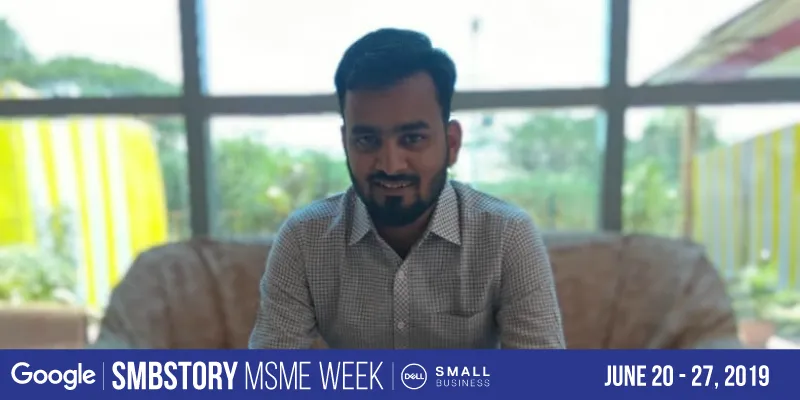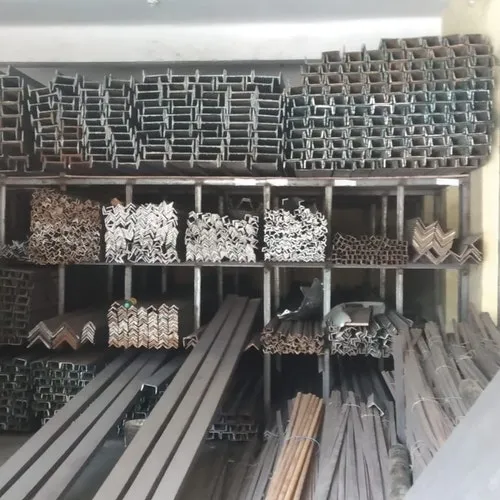This 25-year old CA quit his job to start an asset-light steel company; made Rs 10 Cr in 1 year
Bengaluru-based Amit Chopra's Kesar International sources steel from various states and hires rolling mills to make structural steel products. It sells steel products to construction companies such as Prestige and Sobha.
In his early 20s, Bengaluru-based chartered accountant Amit Chopra was frequently jumping jobs. Having worked at a number of MNCs, he felt he wanted to quit and start his own business.
But which industry would he choose?
With his skill set, Amit could have easily started an accountancy or consulting firm. But he decided to take a leap of faith and venture into the steel industry.
In an interaction with SMBStory on the occasion of MSME Week, he says,
I wanted to be in an industry which wouldn’t slow down or stop. Upon research, I saw that steel was a huge sector in India which was steadily growing.”
Amit was right, because India’s steel production has been on the rise. India was the world’s second-largest steel producer in 2018, with production standing at 106.5 million tonnes in 2018, according to data sourced by India Brand Equity Foundation.

Amit Chopra, Founder, Kesar International
However, becoming a steel producer required mammoth investment and Amit was looking at something smaller.
“I saw that construction companies were facing difficulties sourcing customised types and sizes of structural steel products. They didn’t lack the ability to purchase -they were simply unable to get the right kind of steel products they wanted,” he says.
Amit realised he didn’t need to start manufacturing -he could just start a company which supported construction firms by sourcing and supplying the right kind of steel products to them like steel angles, joists, beams, roads, bars, etc.
This brainwave led Amit to invest Rs 30 lakh from his own savings and with some help from his family to start Kesar International in Bengaluru in 2018.
The company’s objective is to source steel from other states, get it processed into steel products by rolling mills near Bengaluru, and sell the finished steel products to local clients.
Business model
Amit’s asset-light strategy worked wonders. In its first year, Kesar International landed big clients like Prestige and Sobha, and recorded a revenue of Rs 10 crore.
“We started with investing in sourcing metals from Punjab, Madhya Pradesh, Chattisgarh, and more. We then hired rolling mills in places like Hindupur, Anekal and Hosur, which are near Bengaluru,” Amit says.
He adds, “Then these mills would process the steel and customise them exactly how our clients wanted them. From there, we delivered the finished products to not just builders but also coach and ship makers.”
Amit also says that he started up in Bengaluru because it’s a great market to start any business. But his reason isn’t purely strategic; Amit was born and brought up in Bengaluru and he says he has an emotional attachment to the city. It also helps him as there are over 3,000 rolling mills in and around the city.
However, more than 60 percent of them are closed because of several issues including quality control and financial risks,” Amit says.

Kesar International's supply of mild angle steel angles, channels, joists, beams, rods, and bars
Amit has also helped revive a few of these industries by giving them projects to process steel for Kesar International. “They work for us on a project basis, which means we simply have to source steel from the northern states and send it to the rolling mills,” he says.
Since the rolling mills have already invested heavily in their infrastructure and got the necessary approvals, it saves Amit the trouble of doing it himself. “We also understand the client’s requirements, and so the rolling mills and our company are able to get the steel products customised specifically,” he says.
According to him, it’s difficult to do both manufacturing and customisation in-house. “With our model, it is easy to customise products and ensure quality and supply to clients. Steel has lots of quality issues so we procure as per the standards,” he says.
Industry scenario
Nowadays, tall buildings are being constructed faster than ever before, and Amit’s approach is riding the wave.
“Earlier, buildings which were over 20 floors high took two years to build. But with steel joists, they can be finished much faster. This is where we come in and help Prestige, Sobha and other clients construct the building faster by using the right steel products,” Amit says.
To keep up with the industry pace of construction, Kesar International allots teams to work on individual projects for clients and help them understand what kind of structural steel products are required. And since India’s steel industry is well-developed, there is no need to import custom steel products, Amit maintains.

Kesar International's hold and cold rolled mild steel sheet coils
“All the resources are here and we have the capability to make them locally. Although there are a few government restrictions on imports and exports, we manage everything,” he adds.
But a bigger challenge facing Amit is goodwill. In the Indian construction industry, goodwill is paramount to landing new clients. Amit’s firm is just a year old, and faces challenges convincing construction industry stakeholders of the firm’s credibility.
“People often ask about the goodwill or seniority associated with our firm. Goodwill takes a lot of time to build up, and we are a new enterprise. We are working to boost our credibility, which will happen slowly,” he tells SMBStory.
Kesar International also faces financial constraints in scaling up as the steel industry’s stalwarts have deep pockets and can work with massive volumes of steel. “Thankfully, quality is not an issue for us as we don’t manufacture directly. All we have to do is ensuring good quality remains in our products,” he says.
Steel is a good market for any new entrant. But there are certain risks and new businesses have to be risk-averse. He says, “A lot of capital is needed, but there is great scope right from manufacturing and sourcing to supplying. To survive, steel players have to be clear about the terms and objectives of their business in order to succeed.”




-with-the-team.png?fm=png&auto=format&h=100&w=100&crop=entropy&fit=crop)
1563874718888.png?mode=crop&crop=faces&ar=16%3A9&format=auto&w=1920&q=75)



-with-the-team.png?mode=crop&crop=faces&ar=1%3A1&format=auto&w=1920&q=75)